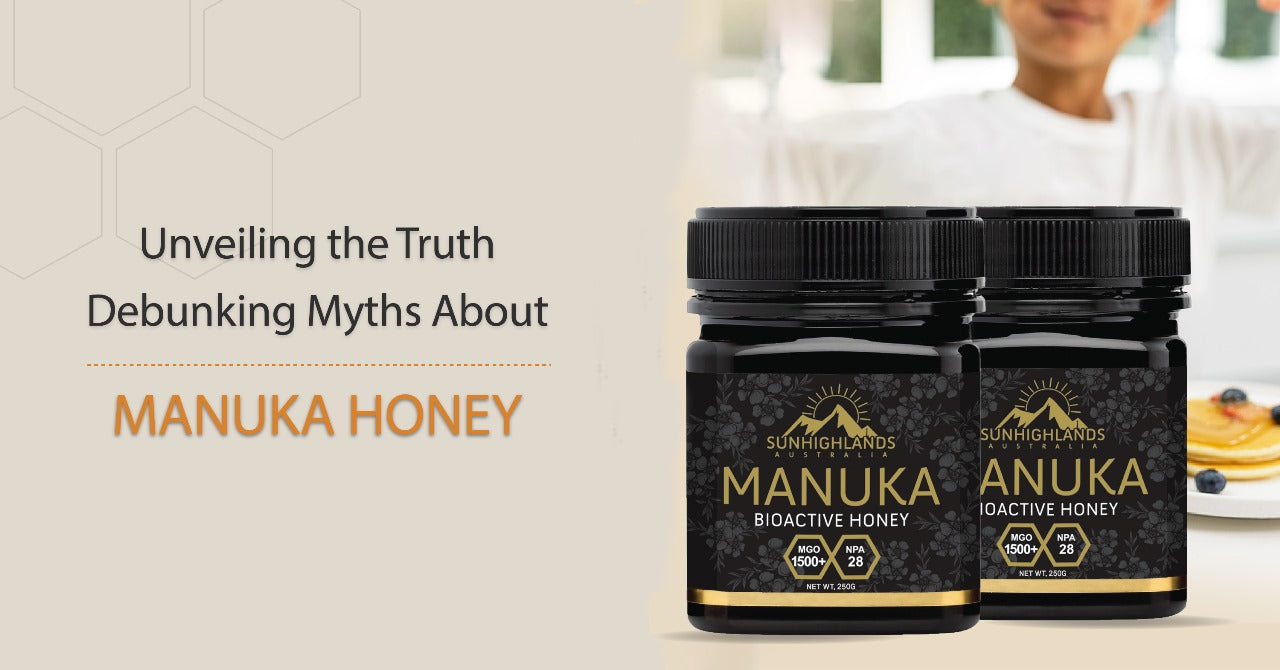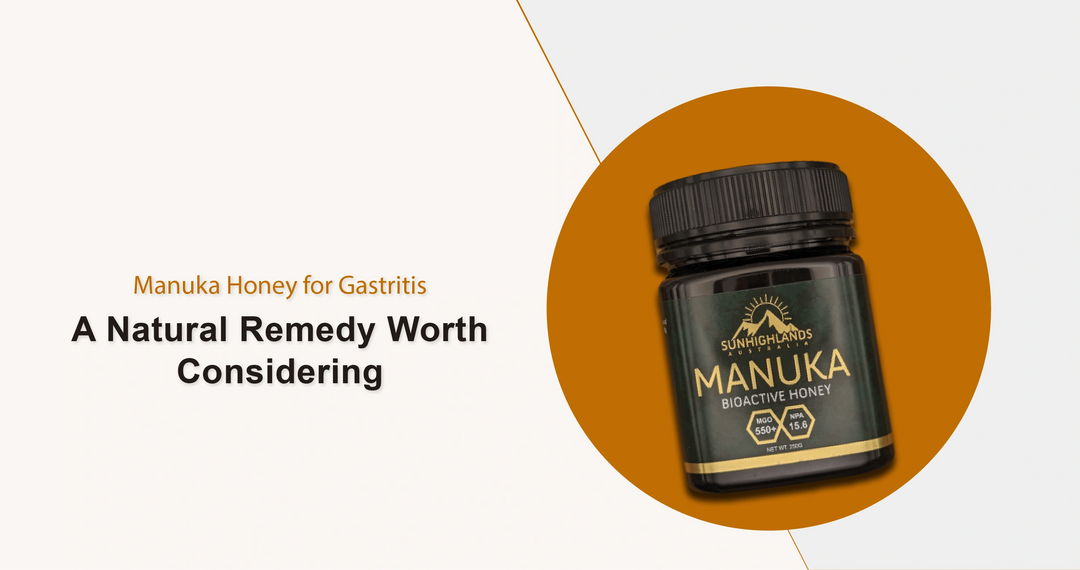Debunking Myths About Manuka Honey

Manuka honey is well-known not just for sweetening our food but also for its health benefits, like helping with immune health and wound healing. But, there are quite a few myths out there about Manuka honey. So let's go through some of these myths and address them with straightforward facts.
Myth 1: All Honey Is the Same
Contrary to the one-size-fits-all perception of honey, Manuka honey distinguishes itself through its unique source—the Manuka bush in New Zealand and parts of Australia. Its exceptional properties set it apart from regular honey varieties.
Myth 2: The More Expensive, the Better
While Manuka honey can be pricey, its value isn't solely dictated by cost but by the MGO content and the Unique Manuka Factor (UMF) rating, which measure its antibacterial strength. Choosing which honey to buy based on these ratings, rather than price, ensures you get all the intended health benefits.
Myth 3: Honey Is Good for Everyone
Although honey is a versatile sweetener, Manuka honey isn't suitable for everyone. Infants under one year, individuals with bee product allergies, or those managing diabetes should exercise caution. We reccomend consulting your healthcare provider to tailor its use to your lifesyle.
Myth 4: Honey Can Cure Everything
Despite Manuka honey's potent anti-bacterial and anti-inflammatory properties, it's not a miracle cure. It should complement, not replace, professional medical advice and treatments, offering support to overall well-being rather than acting as a standalone solution.
Myth 5: All Honey Sold Is Pure
Sadly, not all honey products maintain purity, with some diluted with syrups or sugars. Seeking out reputable brands and products bearing quality certifications like UMF ensures you're getting genuine, beneficial Manuka honey.
Myth 6: Heating Honey Makes It Toxic
The belief that honey becomes toxic when heated is a myth. While excessive heat may diminish some of the honey's beneficial enzymes and antioxidants, it doesn't make it poisonous. Proper storage can preserve honey's beneficial properties for longer periods.
Myth 7: Crystalisation Means It's Gone Bad
Crystallisation is a natural process that doesn't compromise manuka honey's quality or medicinal value. With its high sugar and low water content, Manuka honey is especially prone to crystallisation, which can be reversed by gently warming the honey.
Myth 8: Honey Loses Quality With Age
Manuka honey's qaulity doesn't necessarily wane with age. While it may undergo physical changes like crystallisation or color darkening, these don't directly impact its health benefits. Proper storage ensures its longevity and continued effectiveness.
Conclusion
Dispelling these myths enables a deeper understanding and appreciation of Manuka honey's genuine benefits. By making informed choices, consulting healthcare professionals as needed, and considering individual health circumstances, you can integrate Manuka honey into your routine responsibly and effectively.





